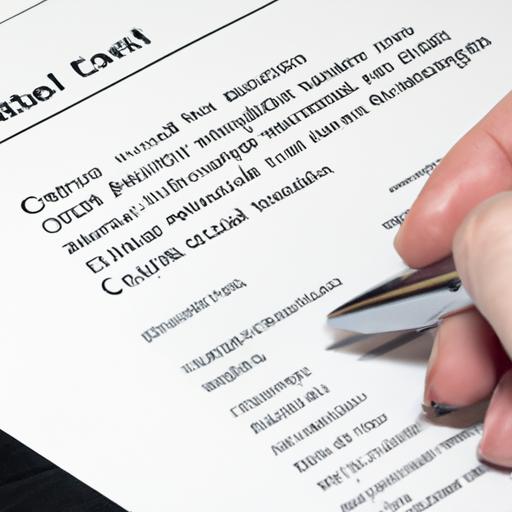In today’s financial landscape, maintaining a good credit report is crucial for individuals seeking loans, mortgages, or even employment. However, credit report errors can occur, potentially impacting your financial well-being. In this comprehensive guide, we will delve into the process of fixing credit report errors, empowering you to take control of your financial reputation.

Understanding Credit Report Errors
Common Types of Credit Report Errors
Credit report errors can manifest in various forms, including:
- Incorrect personal information (e.g., name, address, social security number)
- Inaccurate account balances or payment history
- Unauthorized accounts or fraudulent activity
- Outdated or duplicate accounts
How Errors Can Occur
Credit report errors can arise due to multiple factors, such as:
- Clerical errors made by credit reporting agencies
- Incomplete or incorrect information provided by lenders or creditors
- Identity theft or fraudulent activity
- Technical glitches during data transmission
Identifying Credit Report Errors
To identify credit report errors, follow these steps:
- Obtain a copy of your credit report: Request your free annual credit report from each of the three major credit reporting agencies – Equifax, Experian, and TransUnion.
- Review the report thoroughly: Carefully examine each section, including personal information, accounts, and payment history.
- Document and gather evidence of errors: Make a note of any discrepancies or inaccuracies you find. Collect supporting documents, such as billing statements or correspondence with lenders.


Steps to Correct Credit Report Errors
Step 1: Obtain a Copy of Your Credit Report
To get started on the path to credit report error resolution, obtain a recent copy of your credit report from one or more credit reporting agencies. This will provide you with a comprehensive overview of your credit history.
Step 2: Review the Report Thoroughly
Take the time to review your credit report in detail, paying close attention to personal information, accounts, and payment history. Look for any inconsistencies, errors, or fraudulent activities that may have negatively impacted your credit standing.
Step 3: Document and Gather Evidence of Errors
To strengthen your case when disputing credit report errors, it’s important to gather evidence. Keep a record of any incorrect information, including account numbers, dates, and amounts. Additionally, collect supporting documents such as billing statements or correspondence with lenders.
Step 4: Dispute the Errors with Credit Reporting Agencies
To initiate the process of correcting credit report errors, you must submit a dispute to the credit reporting agencies. This can typically be done online, by mail, or through their designated dispute resolution platforms. Clearly outline the errors and provide the evidence you have collected to support your claim.
Step 5: Follow Up and Monitor the Corrections
After disputing the errors, credit reporting agencies are obligated to investigate and resolve the issues within a specific timeframe. It’s important to follow up regularly to ensure the corrections are made. Monitor your credit report for updates and verify that the errors have been rectified.
Frequently Asked Questions (FAQ)
What is the Fair Credit Reporting Act (FCRA)?
The Fair Credit Reporting Act (FCRA) is a federal law that governs the collection, accuracy, and use of consumer credit information. It provides consumers with the right to dispute and correct credit report errors.
Can credit report errors be fixed for free?
Yes, consumers are entitled to one free copy of their credit report per year from each of the three major credit reporting agencies. Additionally, disputing credit report errors is generally a free process.
How long does it take to correct credit report errors?
The timeframe for correcting credit report errors can vary. According to the FCRA, credit reporting agencies must investigate and respond to disputes within 30 days. However, complex cases may take longer to resolve.
Will fixing credit report errors improve my credit score?
Correcting credit report errors can potentially improve your credit score. By removing inaccuracies or fraudulent activities, your credit report will reflect a more accurate representation of your financial history, which may positively impact your creditworthiness.
Can I dispute credit report errors online?
Yes, many credit reporting agencies provide online platforms for disputing credit report errors. These platforms streamline the process, allowing you to submit your dispute and supporting evidence electronically.

Tips to Prevent Credit Report Errors
To minimize the risk of credit report errors, consider the following tips:
- Regularly monitor your credit report to identify potential errors promptly.
- Keep meticulous records of all financial transactions, such as loan agreements, payment receipts, and correspondence.
- Notify credit reporting agencies promptly of any changes or updates to your personal information or accounts.
Conclusion
In conclusion, rectifying credit report errors is essential to safeguarding your financial reputation. By following the steps outlined in this guide, you can take control of your credit report and ensure its accuracy. Remember, vigilance and proactive measures are key to maintaining a healthy credit history. Take action today, and pave the way for a brighter financial future.
